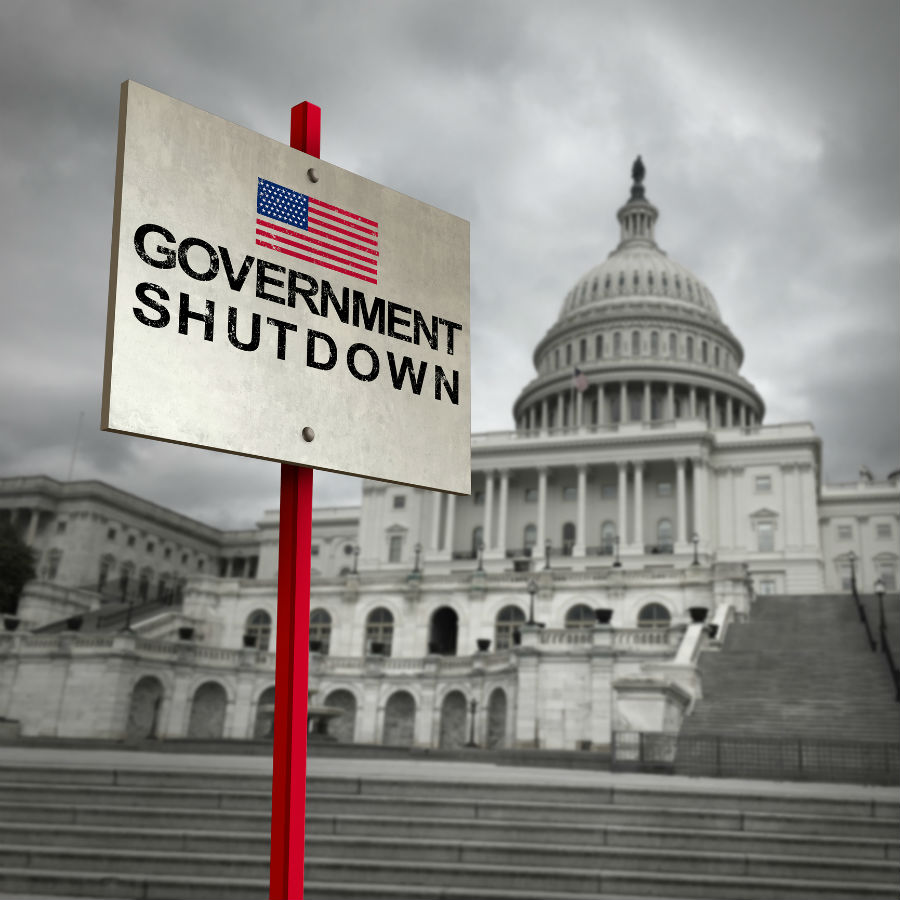The partial government shutdown is already yielding some devastating results in the realm of airport protection, national parks being closed, with more to possibly come. Some renters in Alma, Arkansas could be facing eviction for an issue they have absolutely no control over. While understanding everyone needs to be paid but it’s a bit appalling and insensitive for a property manager to threaten eviction to those residents who are affected by the shutdown and aren’t getting paid due to the shutdown.
Read more as reported by HuffPost:
Some renters in Arkansas are already facing eviction, thanks to the partial government shutdown.
A property manager told tenants in Alma last Friday that the shutdown has cut off a federal rental assistance program that covers a portion of their rent.
“Until the government opens again, you are responsible for ALL of your rental amount,” the letter said, threatening eviction if tenants don’t pay up by the 20th.
The shutdown is creating financial stress for hundreds of thousands of furloughed federal workers. If the shutdown continues, low-income renters could also feel the sting.
Tens of thousands of low-income households relying on the federal government to help them pay rent could lose that assistance if the shutdown persists. Many of those households include seniors and people with disabilities.
Diane Yentel, the director of the National Low Income Housing Coalition, called it “appalling” that a landlord has already threatened to evict tenants because of the shutdown. But she said it’s ultimately on Congress and President Donald Trump, who said he won’t sign a government funding bill that doesn’t include $5.7 billion for his proposed border wall.
“It is incredibly reckless to risk the homes of some of our country’s poorest seniors, people with disabilities and families with children as perceived leverage for a fight that has nothing to do with them,” she said.
The Department of Housing and Urban Development said it can’t renew some contracts with private landlords in its project-based rental assistance program, known as Section 8, which contracts with private building owners to reserve at least 40 percent of their rental units for low-income families.
Project-based affordable housing supports 1.4 million households. An additional 2.2 million households use portable rental vouchers, which are funded until March.
About 1,150 housing contracts under the program were up for renewal but expired in HUD’s system after parts of the federal government closed Dec. 22. Those contracts include 500 expiring this month and affect roughly 40,000 households, according to the Center on Budget and Policy Priorities, and two-thirds of those affected are elderly or are people with disabilities who, on average, have an annual income of less than $13,000. HUD expects an additional 550 contracts to expire in February.
The National Low Income Housing Coalition created an interactive map showing where the expiring contracts are in the U.S. The only states that don’t have households with Section 8 contracts that have expired or may soon expire are Delaware, Hawaii, Rhode Island and West Virginia.
HUD has suggested that the rental contract expirations likely won’t lead landlords to start evicting residents anytime soon. The department has asked landlords not to evict tenants and to dip into reserve funds to meet expenses, if necessary.
But the low-income renters in Alma are apparently subsidized by a U.S. Department of Agriculture program for rural areas, not HUD. The property manager did not immediately respond to requests for comment.
“The longer the shutdown goes on, the more untenable it becomes for owners to keep scraping by without the federal funds they’re expecting ― and the more likely it becomes that those owners will start resorting to rent hikes or evictions of these lowest-income renters, as we are now seeing,” Yentel said.
The USDA did not respond to a request for comment. The agency previously said there would be no new loans or grants for rural housing during the shutdown.
The shutdown is now in its 25th day — the longest shutdown in U.S. history. If the government doesn’t reopen before the end of February, Section 8’s tenant-based voucher program will no longer have any funding. That means housing authorities won’t make voucher payments to landlords nationwide when March rents are due, possibly leading to evictions.
Additionally, the USDA’s Supplemental Nutrition Assistance Program can guarantee food stamps only through February, leading many low-income families to face the prospect of losing both housing and food assistance. Food banks nationwide are pitching in to help as many furloughed workers as possible, and they’re bracing for an influx of visitors if SNAP benefits halt.
The partial shutdown doesn’t appear to be anywhere near a resolution. An estimated 800,000 federal employees will not be paid until funding resumes; about 420,000 of them have been deemed essential and must continue to work.
Source: HuffPost

















































































































































































































































![[Video] Chicago Police Officers Caught On Video Telling Two Black Men "We Kill Mother F**kers"](https://earhustle411.com/wp-content/uploads/2018/07/evil-cop-3-300x180.jpg)
![[Video] Chicago Police Officers Caught On Video Telling Two Black Men "We Kill Mother F**kers"](https://earhustle411.com/wp-content/uploads/2018/07/evil-cop-3-80x80.jpg)












![[Video] White Woman Calls The Cops On Black Real Estate Investor, Cops Threaten To Arrest Her For Harassing Him](https://earhustle411.com/wp-content/uploads/2018/05/nosy-neighbor-300x180.png)
![[Video] White Woman Calls The Cops On Black Real Estate Investor, Cops Threaten To Arrest Her For Harassing Him](https://earhustle411.com/wp-content/uploads/2018/05/nosy-neighbor-80x80.png)


![White Scientist Says The Black Community Is Being Targeted By The Medical System, They Are Deliberatly Being Poisoned [Video]](https://earhustle411.com/wp-content/uploads/2016/05/mike-adams-300x180.jpg)
![White Scientist Says The Black Community Is Being Targeted By The Medical System, They Are Deliberatly Being Poisoned [Video]](https://earhustle411.com/wp-content/uploads/2016/05/mike-adams-80x80.jpg)








![Teenage Girl Shot In Her Stomach Three Times But Took Time To Post To Facebook [ Video]](https://earhustle411.com/wp-content/uploads/2016/02/Gangster-chick-300x180.jpg)
![Teenage Girl Shot In Her Stomach Three Times But Took Time To Post To Facebook [ Video]](https://earhustle411.com/wp-content/uploads/2016/02/Gangster-chick-80x80.jpg)







